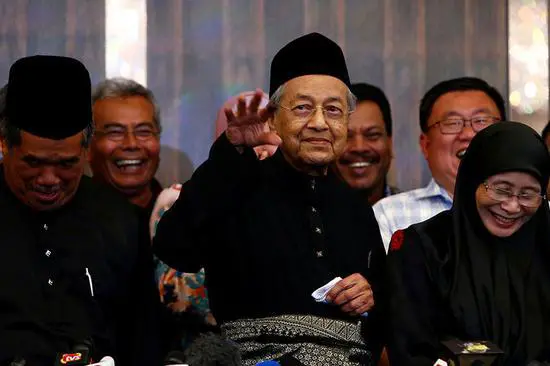By APD researcher Con Peiying(Translated by Ma Qian)
JERUSALEM, Dec,8 (APD)-The White House has recently announced that U.S. President Donald Trump will officially recognize Jerusalem as the capital of Israel. Meanwhile, the U.S. State Department will start the process of moving the U.S. Embassy in Israel from Tel Aviv to Jerusalem.
The U.S. government has made a briefing, explaining that Trump’s announcement only confirmed an existing fact, while it might take several years to relocate the embassy. Trump will continue with the previous practice of signing a six-month waiver until the relocation of the embassy is completed. It is widely believed that Trump’s decision on Jerusalem imperils the current peace process in the Israeli–Palestinian conflict and the stability of the Middle East.
Jerusalem has been the most controversial city and the most sensitive area in the Middle East and the world. According to the United Nations Partition Plan for Palestine proposed in 1947, Jerusalem would be an international city, belonging to neither Jewish states nor Arab states.
After the 1948 Arab–Israeli War, Jerusalem was divided into two parts. Israel controlled West Jerusalem where Jews were the majority. While Jordan took East Jerusalem where Arabs were the majority. Therefore, Jews living in East Jerusalem and Arabs living in West Jerusalem were uprooted.
Israel occupied East Jerusalem in the 1967 Arab–Israeli War, including 6.4-square-kilometer Jerusalem area controlled by Jordan and the 64-square-kilometer Old City of Jerusalem near the West Bank, and began to rein in the region.
In fact, Israel’s occupation of East Jerusalem breached the basic principle of international law, which clarifies that occupation does not justify sovereignty.
In July 1980, Israel passed the Jerusalem Law as Basic Law. The law declared Jerusalem the "complete and united" capital of Israel. However, The United Nations Security Council passed Resolution 478 in August 1980 to denounce Israel’s annexation of East Jerusalem, declaring that the Basic Law was "a violation of international law."
To date, no country has recognized Israel’s sovereignty over the whole Jerusalem. Trump’s recognition of Jerusalem as Israel’s capital is tantamount to recognizing the legitimacy of Israel’s occupation of East Jerusalem, which goes against the United States’ long-held position on issues concerning the Middle East.
There are around 400,000 Palestinians so far in Jerusalem, who have only permanent residency but no citizenship. Since 1967, Israel has established more than 10 settlements in East Jerusalem, which have housed around 200,000 Jews. Jerusalem is of crucial religious significance in the Muslim world. The Temple Mount (venerated by Muslims as “the Noble Sanctuary”), on which Al-Aqsa Mosque and the Dome of the Rock are located, has been reckoned as the third holiest site after Mecca and Medina. Muslims believe it was at this place that the Prophet Muhammad ascended to the “Divine Presence” at night.
Previously, Jordan and Israel agreed that Waqf, an Islamic religious trust, managed religious affairs on the Temple Mount, while Israel took charge of the external security issues. Jews can enter the Temple Mount as visitors, but are not allowed to perform prayers there.
However, right-wing organizations related to the Temple Mount in Israel have been striving to gain the right for Jews to do prayers on the Temple Mount, which caused fierce opposition among the Palestinians. On September 2000, the then leader of the Likud party Ariel Sharon, surrounded by 1,000 Israeli riot police, made a visit to the Temple Mount, which was seen by Palestinians as highly provocative and gave rise to the second intifada, or the second Palestinian uprising against Israel. The violence killed more than 3,000 Palestinians and more than 1,000 Israelis. Over the years, constant clashes occurred between the two countries over the status of Jerusalem.
In reality, the status of Jerusalem has not only been a pivotal issue concerning the peace process in the Israeli–Palestinian conflict, but also a highly concerned issue in the overall Muslim world. Trump’s decision to recognize Jerusalem as Israel’s capital touched a sensitive nerve of the whole Muslim world.
Palestinian President Mahmoud Abbas, Jordan’s king Abdullah II bin Al-Hussein and Egyptian President Abdel Fattah el-Sisi all issued warnings, pointing out that the move jeopardizes the Israeli–Palestinian peace process and regional security and stability of the Middle East.
Saudi Arabia’s King Salman warned that“such a dangerous step is likely to inflame the passions of Muslims around the world due to the great status of Jerusalem and the Al-Aqsa Mosque.” While Turkish Presidnet Recep Tayyip Erdogan said that Turkey will cut diplomatic ties with the U.S. if the US Embassy in Israel is relocated to Jerusalem.
In Gaza, hundreds of Palestinians took to the streets to protest against Trump’s decision. In the West Bank, Palestinians are also preparing for large-scale demonstrations.
Perhaps Trump made the decision over Jerusalem to fulfill a pledge that he made during the U.S. presidential campaign, securing supports from Jewish-Americans and right-wing electorate. However, the decision is without doubt a hazardous diplomatic move of Trump, which is highly likely to trigger social unrest in the Middle East, ignite large-scale anti-America sentiment in the Muslim world and catapult the U.S. into a severe plight.
(ASIA PACIFIC DAILY)
 简体中文
简体中文

